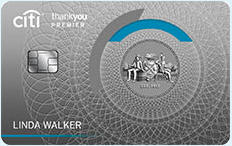Points Panda has partnered with a variety of financial companies including CreditCards.com for our coverage of credit card products. Points Panda and CreditCards.com may receive a commission from card issuers. Opinions, reviews, analyses & recommendations are the author’s alone, and have not been reviewed, endorsed or approved by any of these entities. Terms apply to American Express benefits and offers. Enrollment may be required for select American Express benefits and offers. Visit americanexpress.com to learn more.
The content on this page is accurate as of the posting date; however, some of the offers mentioned may have expired. For more information please read our full Advertiser Disclosure.
Points Sharing: Reason #1253 credit card points are better than frequent flyer miles
Have you ever wanted to transfer some miles from your travel credit cards to someone else’s account? Airlines will let you do it… but it’ll probably cost you. United Airlines charges $7.50 for every 500 miles transferred and also adds a $30 transaction fee. So transferring 5,000 miles to your spouse costs $100+. That’s a hard pass.
However, the credit card currencies (Citi, Chase, American Express, SPG/Marriott) all have options to transfer points between spouses, children, and potentially even friends. And better yet, it’s either free or much cheaper.
Citi

Citi gives the most flexibility among the three banks. You can transfer your Citi ThankYou points to anybody else who has a Citi ThankYou account. They don’t need to be your spouse, or a relative, or a roommate; as long as they have a Citi ThankYou account (as in, they have a Citi credit card which earns ThankYou points), you can send your points their way.
Pros: Having this kind of flexibility is a great way to consolidate credit card points for premium award travel. It’s also a great way to “save” points from being wasted when someone wants to cancel their Citi ThankYou credit card.
Cons: The big caveat when transferring Citi ThankYou points is that they must be transferred to the member’s frequent flyer program within 90 days of being received. So it’s better to have a specific redemption in mind before you transfer.
Pro Tip: Taryn and I recently took advantage of the Citi sharing rules to accumulate and consolidate Singapore Airlines miles. I’ve had the Citi Premier credit card for years, and I needed about 40,000 more Citi ThankYou points to put us within range of a Singapore Airlines First Class award flight. I could try to earn 40,000 ThankYou points through credit card spending alone (at least $13,000)… or instead, Taryn could sing up for the same Citi Premier credit card then transfer her 50,000 points sign-up bonus to me. Spending $4,000 in order to qualify for the sign-up bonus is much easier than spending $13,000+. I added Taryn’s 50,000 points to my ThankYou account, then immediately transferred them to my Singapore Airlines KrisFlyer account. The 50,000 points allowed me to book two seats in Singapore Airlines First Class. No, not in Singapore Suites… but I am looking forward to the airline’s Book the Cook offering.

Chase

As you know, I love Chase Ultimate Rewards points. Chase points can be transferred into a variety of great airline frequent flyer programs. To make things even better, you can also combine points between different people’s Chase Ultimate Rewards accounts.
However, Chase’s rule is a bit more restrictive than Citi’s:
You can move your points, but only to another Chase card with Ultimate Rewards belonging to you, or one member of your household. If we suspect that you’ve engaged in fraudulent activity related to your credit card account or Ultimate Rewards, or that you’ve misused Ultimate Rewards in any way (for example by buying or selling points, moving or transferring points with or to an ineligible third party or account, or repeatedly opening or otherwise maintaining credit card accounts for the sole purpose of generating rewards) we may temporarily prohibit you from earning points or using points you’ve already earned. If we believe you’ve engaged in any of these acts, we’ll close your credit card account and you’ll lose all your points.
Pros: Even easier to consolidate points into one account since there are so many different Chase credit cards that earn Ultimate Rewards points such as the Chase Freedom Flex, Chase Freedom Unlimited, Chase Sapphire Preferred, and Chase Sapphire Reserve; even more if you count the Chase business cards).
Cons: Chase isn’t messing around with that threat about losing points. So make sure you only combine your points with someone living in the same house/address. Why wouldn’t Chase just preemptively block those kinds of transfers? Great question, but I’m not willing to roll the dice on this one.
Pro Tip: If you only have the Chase Freedom or Chase Freedom Unlimited credit card, “points” earned through spending are only good for cashback. But… you can transfer those Chase Freedom “cash back only” points to another member of your household with a Chase Sapphire credit card, and they magically become transferable to one of Chase’s airline partners. This is exactly what Taryn and I do each month. Since the Chase Freedom Unlimited card earns 1.5 points/dollar, we can place non-dining or travel-related expenses on our separate Freedom and Freedom Unlimited cards (earning more points than either of the Sapphire cards), then combine all the points into one account, allowing us to maximize our total points earning. That beats earning 1 mile/dollar using the United MileagePlus Explorer card like we used to do.

American Express

AMEX is the buzzkill of the group. Not only do they limit sign-up bonuses to once in a lifetime, but they also limit points sharing. In fact, AMEX doesn’t allow cardmembers to transfer their Membership Rewards points to another person’s account.
But all hope is not lost. The primary cardmember can transfer their Membership Rewards points into another person’s frequent flyer account… but only if that person is an authorized user. With the American Express Gold Card, that’s not a huge deal, since it doesn’t cost anything to add an authorizer user to the account. But up to three authorized users for the AMEX Platinum card cost the primary cardholders an extra $175… and that’s in addition to the $550 annual fee. Yikes.
Pros: it’s possible?
Cons: extremely limited options; can only transfer into an authorized user’s frequent flyer account rather than sharing/combining Membership Rewards points.
Pro Tip: It might be easy to add authorized users, but keep in mind that those cards will also contribute to the authorized user’s count against the Chase 5/24 rule. And if you having any intention at all of going “all in” with the points game, you’ll want to be very cognizant of where you stand with the 5/24 rule. In short, you wouldn’t want to be an authorizer user for any family member’s credit card.
SPG/Marriott

And now for the last of the four credit card currencies. The SPG/Marriott loyalty programs are in the middle of a major merger, so take this guidance with a grain of salt.
Pros: Like Citi ThankYou points, Marriott points can be transferred to anyone; all they need to have is their own Marriott Rewards account. Super simple and super flexible.
Cons: There is a $10 transaction fee when transferring to another person’s Marriott Rewards account, and only 50,000 Marriott points can be transferred into or out of each account each year. Since 50,000 Marriott points are only equal to 16,667 airline miles (3:1 ratio), it’s significantly limiting compared to the other points sharing options.
Pro Tip: At least before the official merger (set for August 18), you can convert your Marriott points into SPG points at a 3:1 ratio. And SPG points don’t have any limits on how many points one person can transfer to another, so transferring into your SPG account could be a workaround for the cost and point limit with Marriott points. The thing to be aware of is that SPG accounts must share the same residential mailing address (not a P.O. Box, APO, or SPO address) for a minimum of 30 days prior to requesting the transfer. So depending on your situation, it could be advantageous using either the Marriott or SPG points sharing programs. At least until August 18!
Advertiser Disclosure
PointsPanda Deal of the Week!
Looking for the best flight deals? Each week we'll send you updates with the best deals on flights and hotels both using points and cash.






Responses are not provided or commissioned by the bank advertiser. Responses have not been reviewed, approved or otherwise endorsed by the bank advertiser. It is not the bank advertiser’s responsibility to ensure all posts and/or questions are answered.